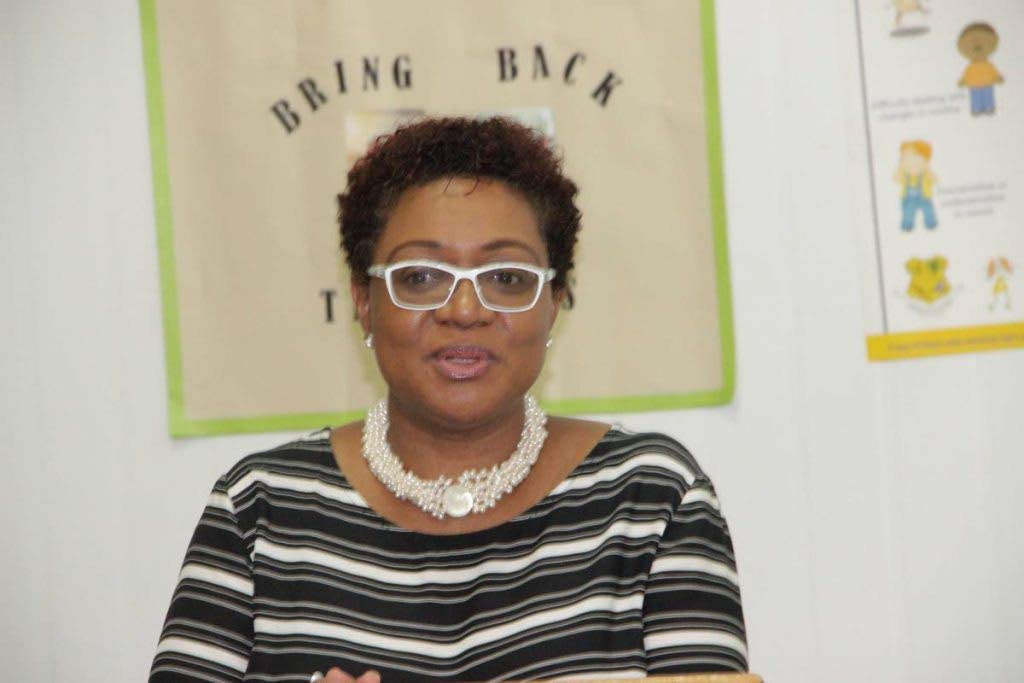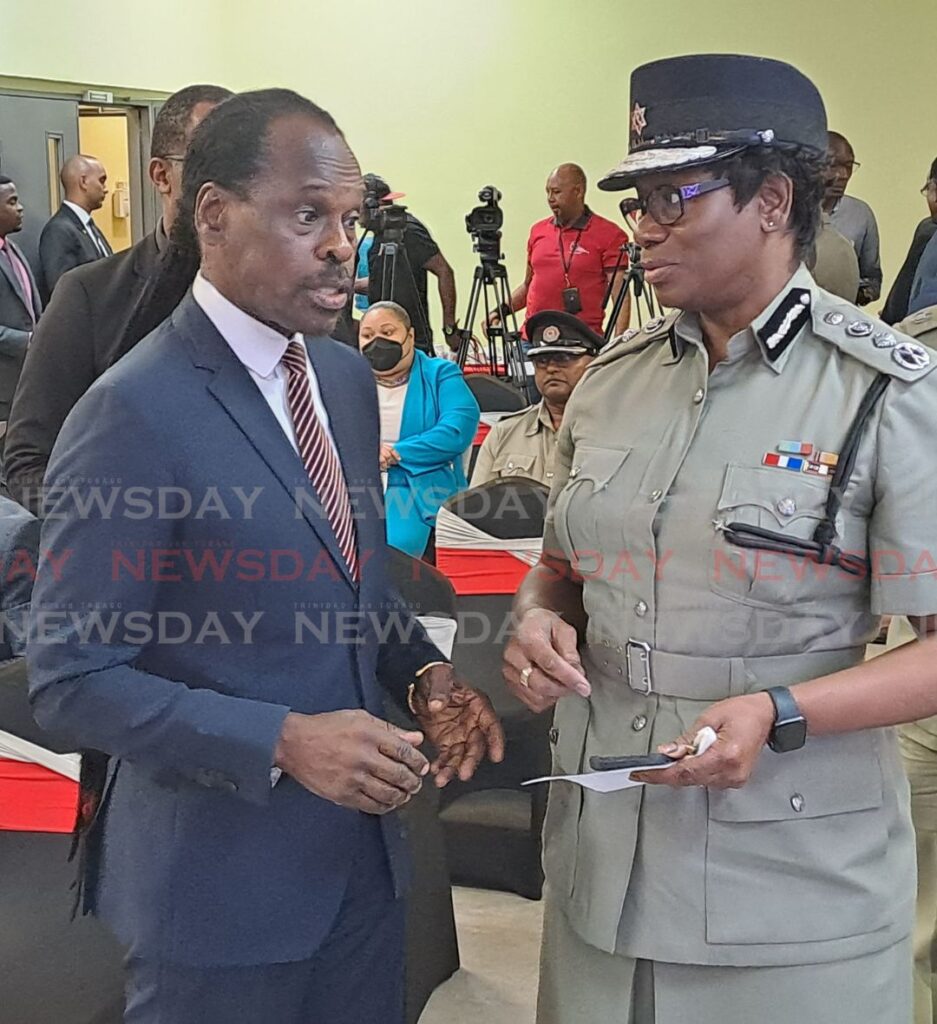Ex-CTU head: Government must act swiftly to save Trinidad and Tobago from trafficking-in-persons downgrade

FORMER head of the Counter-Trafficking Unit Alana Wheeler says Government will have to work harder to move the country from the grasp of a downgrade in the Traffic In Persons report for the next reporting period.
The 2023 report was published on Thursday and ranked TT at Tier 2 Watch List for a third consecutive year, which normally means an automatic downgrade to Tier 3. However, TT was spared the downgrade thanks to a waiver.
The waiver was given as the country, in its detailed plans, showed how it intends to improve its handling of human trafficking.
Countries ranked at Tier 3 are those that fail to meet the minimum standards of the UN TIP Protocol and the US Trafficking Victims Protection (2000 ) Act (TVPA), and are not making efforts to do so.
A downgrade would have seen TT being banned from getting some financial assistance from the US and being ineligible to access some loans from the International Monetary Fund (IMF).
If TT does not improve, it will be downgraded, as a waiver can only be given once. TT was last downgraded in 2021, when it went from Tier 2 to Tier 2 Watch List.
“Countries on Tier 3 may be subject to certain restrictions on foreign assistance whereby the president may determine not to provide US government non-humanitarian, non-trade-related foreign assistance as defined in the TVPA.”
Speaking to Newsday, Wheeler said there is hope for TT, as Belize was in a similar position in 2021 and was upgraded to Tier2 after a three-year consecutive Tier 2 Watch List ranking.
The only Caribbean country listed in Tier 3 is Cuba. Haiti was also given a waiver this year.
She said it is concerning that the report showed inconsistencies between what the Government reported and what observers reported.
“One of the main things we have to deal with is securing convictions, having a faster judicial process and dealing with complicit officers and officials.”
She remained optimistic that the country will see convictions in the next reporting period, thanks to specialised human-trafficking courts which will help in taking it back to its 2020 standing of Tier 2.
One of the prioritised recommendations given in the report was to increase efforts to investigate and prosecute traffickers, including officials and staff allegedly complicit in trafficking crimes, and seek adequate penalties for convicted traffickers, which should involve significant prison terms.
Reducing judicial backlog and increasing proactive victim identification, screening, and protection among vulnerable communities, including children in children’s homes and schools; and migrants, asylum-seekers, and refugees, especially Venezuelans, were other recommendations.

When contacted, National Security Minister Fitzgerald Hinds said he was “quite pleased and happy” that TT was able to hold its own and he “looks forward to implementing the recommendation.” He added that he was also “looking forward to a much better day.”
Calls and messages to CTU head Dr Samantha Chaitram went unanswered.
The report highlighted an investigation launched by Police Commissioner Erla Harewood-Christopher into allegations that members of the UNC were involved in human trafficking. The issue was reignited in Parliament in April when Opposition MP Rodney Charles raised the point of government officials being involved in human trafficking.
The Prime Minister, responding to him, said after inquiring, he was told the government officials were UNC members of Parliament. A week later, Harewood-Christopher launched an investigation. Former UNC member Devant Maharaj gave a witness statement to police sharing what he said was first-hand knowledge that some of his former colleagues were involved in human trafficking. In March, he gave a statement to police to assist with the investigations.
Asked if the country can improve, Wheeler said there is hope.
“The ball is in the Government’s court and the Judiciary’s court. It is up to the Government and state agencies and the judicial process, because the report measures government efforts. So it means that the state agencies would need to step up and do what they are required to do to get us out of that watch list.”
The report complimented the increase in the CTU’s staff. However, Wheeler said the unit needs of more resources, including qualified and trained staff.
Executive director of Caribbean Centre For Human Rights Denise Pitcher admitted that the Government has done some things to keep the country out of Tier 3.
However, she said because of the alleged involvement of state officials in human trafficking victims are afraid to come forward and make reports. She added that some victims, when they do come forward, are ridiculed.
“One of the main things is engaging in actions to crack down on corruption within state agencies because the report identified state officers involved.
"It is an open secret,” she said, adding that it's a real concern that the country will be downgraded.
“Human trafficking is not abating. It continues to flourish, and unless there is progress in the courts and unless there is progress in terms of prosecution, in terms of conviction, we are not going to see much material changes, because people continue to act with impunity.”
She spoke of the case of the 21-year-old Venezuelan woman who accused two members of the Coast Guard of raping her while she was detained at the Immigration Detention Centre at the Heliport in Chaguaramas and later abandoning her at the side of the Western Main Road.
Head of the police's Gender-Based Violence Unit Snr Supt Claire Guy-Alleyne said the rape allegation was investigated and was debunked.
Attorney Criston Williams said the threat of a downgrade should be taken seriously as it will affect the socio-economic status of the country and its international reputation.
He also said if the country had no laws to recognise asylum-seekers and refugees, then it would be “spinning top in mud.”
“It is very important for us to amend the Immigration Act to recognise those categories of people. And when we have the Traffic In Persons Act that does not recognise those people, then what are we doing? So unless the Government in a short, fast time frame, amends the Immigration Act, then the repercussions will be a downgrading.”
In February, at the opening of a three-day forum on trafficking in persons hosted by the Freedom from Slavery Organisation, Hinds said a national task force against trafficking in persons had been established, as well as the completion of a national plan of action against trafficking in persons, 2021-2025, being approved by Cabinet.
"This covers effective identification of victims and witnesses, prevention, protection of survivors and witnesses and prosecution" Hinds said, adding that the task force will focus on educating citizens to better identify victims of human trafficking to be better able to contribute to solving the problem.
Other things done by the government came through judicial intervention with the passage of the Administration of Justice (Indictable Proceedings) Amendment Act, which allows those charged with human trafficking to forgo preliminary inquiries and be indicted immediately.


Comments
"Ex-CTU head: Government must act swiftly to save Trinidad and Tobago from trafficking-in-persons downgrade"